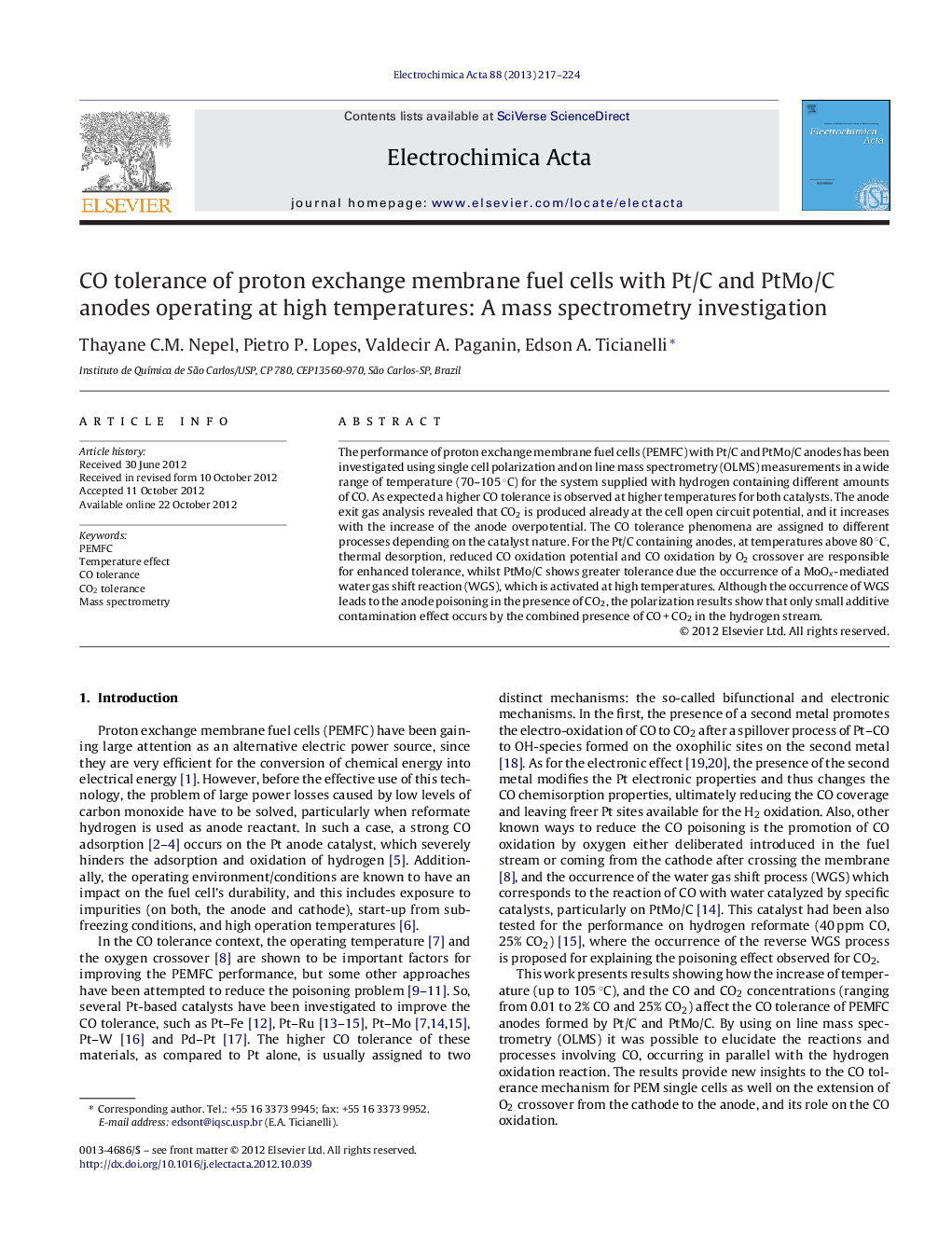| Article ID | Journal | Published Year | Pages | File Type |
|---|---|---|---|---|
| 187695 | Electrochimica Acta | 2013 | 8 Pages |
The performance of proton exchange membrane fuel cells (PEMFC) with Pt/C and PtMo/C anodes has been investigated using single cell polarization and on line mass spectrometry (OLMS) measurements in a wide range of temperature (70–105 °C) for the system supplied with hydrogen containing different amounts of CO. As expected a higher CO tolerance is observed at higher temperatures for both catalysts. The anode exit gas analysis revealed that CO2 is produced already at the cell open circuit potential, and it increases with the increase of the anode overpotential. The CO tolerance phenomena are assigned to different processes depending on the catalyst nature. For the Pt/C containing anodes, at temperatures above 80 °C, thermal desorption, reduced CO oxidation potential and CO oxidation by O2 crossover are responsible for enhanced tolerance, whilst PtMo/C shows greater tolerance due the occurrence of a MoOx-mediated water gas shift reaction (WGS), which is activated at high temperatures. Although the occurrence of WGS leads to the anode poisoning in the presence of CO2, the polarization results show that only small additive contamination effect occurs by the combined presence of CO + CO2 in the hydrogen stream.
► CO tolerance of Pt/C and PtMo/C PEMFC anodes is investigated by on line mass spectrometry. ► High CO tolerance is observed for high PEMFC temperatures. ► Increase of tolerance for Pt/C is due to thermal desorption, reduced CO oxidation potentials, and CO oxidation by O2 crossover. ► PtMo/C presents increased CO tolerance due the occurrence of a MoOx-mediated was gas shift reaction.
